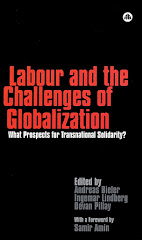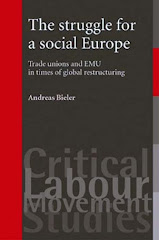What
is engaged research? How can it be made acceptable within academia and be
useful for social movements? What is the relationship between engaged
researchers and activists? Over 50 scholar-activists gathered at the University
of Nottingham for the workshop on Going
Beyond Academia, hosted by the Centre for the Study of
Social and Global Justice (CSSGJ) to discuss these issues and related
themes. In this blog post, I will make some personal observations on some of
the themes discussed at this fascinating and extremely productive workshop.
Disjuncture
between the academy and activist knowledge
In
her opening talk, Ana
Dinerstein from Bath University discussed the disjuncture between scholarly
produced theory and activist knowledge. From within academia, there is a lack
of engagement with community theorising and engaged research. Activist
knowledge is often ignored within the universities partly also because it is
often unsettling established knowledge and categories of enquiry and,
therefore, uncomfortable for academics. For example, many well-meaning
academics are involved in poverty alleviation projects. What they do not
realise, however, is that by doing this they are actually reifying poverty and
the poor, the very thing they try to overcome.
This
disjuncture between academic and activist knowledge often results from the
demands of being scientific within academia and pursuing methodologies of
scientific rigour along the lines of being an objective researcher studying
phenomena from the outside. Hence, Ana Dinerstein demanded, what is required is
that we are developing our own definitions of what the key tenets of an alternative
social science are.
Engaged
research, in which academics and activists learn together, can be part of the
answer. It helps overcoming the disengagement between academia and concrete
social struggles and ameliorates the fractured subjectivities of academics,
which often underlies this polarisation between theory and practice. Ana
Dinerstein concluded her talk with a quote by Paolo Freire: ‘No one teaches
another, nor is anyone self-taught’.
Politics of
Knowledge Production and the Contested Field of Academia
The
workshop was structured around small-group discussions of three key themes. In
relation to the Politics of Knowledge
Production, participants emphasised the increasing hierarchisation of universities.
Even professors have become more and more ‘proletarianised’ in that it is now
administrators in central management of universities, who decide how to
organise Higher Education, with members of staff simply following instructions.
Against
this background, it remains important for engaged research to contest
hierarchies including in one’s own teaching practices and to question
established notions of what is considered to be acceptable theorising and
respectable outlets of publication. Universities still offer space for
dissident voices and it is essential to use them for alternative practices.
Discussions
also touched upon the need for opening up alternative spaces of learning
parallel to universities. The Social
Science Centre in Lincoln, offering free public higher education, is an
excellent example in this respect with lecturers offering modules in their
spare time. And yet, are teaching initiative based on volunteers sustainable in
the long run? Perhaps, the focus needs to be on restructuring existing
universities? Academics themselves, collectively, are well able to organise
universities in a non-commercial, free and public way. Universities are clearly
areas of contestation themselves and scholar activists can also start bringing
about change in their own workplace.
Methodological
Challenges in Engaged Research
Many
participants reflected on the difficulties of participatory action research
(PAR). Participation in movement struggles does not necessarily provide
direction for research. Only engagement over a period of time may result in a
concrete understanding of what movements actually need. What is clear is that
methodological questions are of a highly political nature and require ethical
sensitivity when dealing with them in the context of movement struggle.
Some
workshop participants raised the question of whether it was acceptable to
openly criticise movements as a result of engaged research. While raising
critical observations with movements internally may be productive for the
movements themselves, publishing critical observations more widely may be
abused by opponents. Research is in danger of being co-opted by the wrong
people.
Equally
challenging is the task of defending PAR as an acceptable method within
academia. As it does not comply with positivist separations between the subject
and the object, PAR is often accused of lacking scientific rigour. Going beyond
the disjuncture between academic theory and activist knowledge formation is key
in this respect.
Finally,
engaged research, critical theory formation beyond the academic mainstream does
not necessarily involve PAR, but may also follow other lines of methodological
enquiry. The method of ‘sociological intervention’ by Alain Touraine was raised
in this respect. As engaged researchers, we need to be critical in many
different ways and there are many ways of being critical. What does ‘critical’
mean, it was asked? Ultimately, whatever the adopted methodology, it is
important to place knowledge into a practical context in order to overcome the
disjuncture between academia and social movements.
The Researcher’s
Political Engagement and Usefulness to Struggles and Social Justice
Co-operation
between academics and activists is often difficult, partly also because they
work in different time frames. While the former reflect over longer periods of
time, the latter often need to react speedily to frequently changing
circumstances.
As
for engagement with social movement struggles, it is important to emphasise the
co-operative nature of this type of research between academics and activists.
Knowledge is the result of co-production and not the result of an individual’s
work analysing movement struggles from the outside.
The
problem of universities as hierarchical spaces was brought again into the
discussion. While they still offered spaces for alternatives, the increasing
casualization reduces these spaces significantly. It is important to remember,
some argued, that as academics we are also workers engaged in struggles at our
own workplace. Equally, as educators academics have a particular responsibility
in their teaching to introduce students to engaged research in relation to
struggles for social justice.
There
are clearly many issues and tensions around engaged research between academics
and activists. Not all questions could be answered during the workshop nor do
questions necessarily have only one potential answer. What is clear, however, is
that engaged research is absolutely essential in order to ensure knowledge
creation, which is related to concrete struggles and thus meaningful. For me,
this has to start at the own workplace in the push towards autogestion or
collective self-organisation and management of Higher Education and against the
marketization of education as a commodity to be bought by those, who have the
necessary wealth and privilege to afford it.
Andreas.Bieler@nottingham.ac.uk
9 June 2015
Prof. Andreas Bieler
Professor of Political Economy
University of Nottingham/UK
Andreas.Bieler@nottingham.ac.uk
Personal website: http://andreasbieler.net
9 June 2015















No comments:
Post a Comment
Comments welcome!